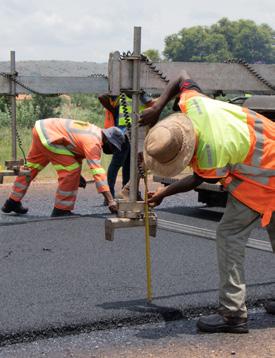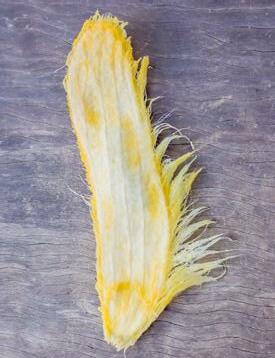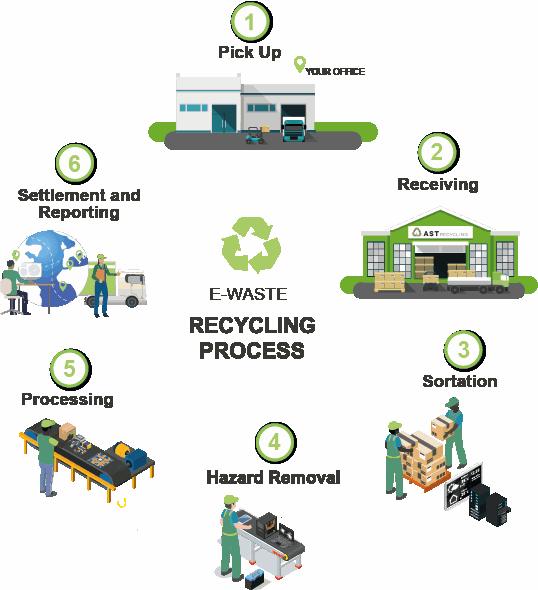
4 minute read
through science, technology and innovation
from ReSource May 2022
by 3S Media
Finding new waste beneficiation opportunities through science, technology and innovation
South African businesses and households still send around 80% of all waste generated to landfill, despite having a policy environment that strongly promotes the waste hierarchy and the diversion of waste towards reuse, recycling and recovery.
Advertisement
By Linda Godfrey & Henry Roman*
hether it be for technical
Wor economic reasons, the private sector has been slow to adopt alternative waste treatment technologies that reduce waste disposal and keep resources circulating within the South African economy.
The Department of Science and Innovation (DSI) established the Waste Research, Development and Innovation (RDI) Roadmap in 2015 to maximise the diversion of waste from landfill towards value-adding opportunities, including the prevention of waste and optimised extraction of value from reuse, recycling and recovery, so as to create local social, economic and environmental benefit. The Roadmap guides South Africa’s portfolio investment in waste R&D and innovation, in order to support effective decision-making; faster insertion of context-appropriate technology; export of know-how and technology (where appropriate); and strengthened RDI capability and capacity. By focusing research on high-value product recovery, it is hoped that
attractive technology solutions can be found that overcome the current skewed economics around waste beneficiation in South Africa – given the current low cost of landfilling, which makes alternative solutions relatively more expensive.
As such, there is an expectation that publicly funded waste research, undertaken by South African universities and science councils, will find uptake and application by local businesses, or will create opportunities for the establishment of new businesses with a focus on waste beneficiation.
Over the past seven years, the DSI has invested in innovative technology development in the valorisation of municipal waste, organic waste, waste plastic, electronic waste and waste tyres. Many of these research projects have been completed, and the findings of the research have been made publicly available on the Waste RDI Roadmap website: www.wasteroadmap.co.za.
The private sector is encouraged to utilise this online resource to find innovative new technologies and approaches for high-value product recovery from waste streams. It is through alternative waste technologies that diversion of waste from landfill can take place in a manner that contributes to both economic growth and job creation.
Technology development
The outcomes from just four of these research projects are highlighted here, but the reader is encouraged to visit the website, review available research, engage with the relevant research leads, and explore opportunities for implementation of the research within local businesses.
High value-added bioproducts from wheat straw, bran and mango seed waste
Dr Chimphango, Stellenbosch University The hemicellulose extract from mango seed husk formed self-supporting thermally stable biocomposite films, with potential application in food packaging. Biocomposite films produced using mango seed husk hemicellulose with varying xyloglucan and xylan presented higher thermal degradation temperatures than commercial xylan.
It was observed that xyloglucan in any ratio during the production of xylan composite films could improve the overall thermal stability of the film. For more information, see wasteroadmap.co.za/research/grant-009.
Recycling of Li-ion batteries
Ms Gericke, Mintek The results of this business case analysis indicated that very low volumes of Li-ion battery waste are currently collected in South Africa. A techno-economic study, comparing pyrometallurgical, hydrometallurgical and physical processes, showed that the most profitable recycling option would be the production and sale of black mass, followed by the hydrometallurgical and pyrometallurgical routes.
In all cases, recycling becomes economical at a Li-ion battery feed rate of round 500 tpa for high-value batteries. For more information, see wasteroadmap.co.za/research/grant-030.
Waste plastics in roads
Mr Mturi, CSIR Smart Mobility This laboratory and in-field research showed potential in using currently non-recyclable waste plastic materials to design rut-resistant asphalt mixes for road construction, without compromising other asphalt performance requirements. The approach requires the adoption of necessary criteria to establish a consistent source of waste plastic.
The research also highlighted the need to understand the mechanism that improves rut resistance to ensure this benefit is realised through controlling performance criteria and handling of the asphalt mix. Furthermore, the research identified requirements for measuring additional asphalt properties that would quantify the contribution of the asphalt layer to safety, health and environmental sustainability. For more information, see wasteroadmap.co.za/research/grant-021.
Recovery of valuable metals from waste electrical and electronic equipment
Dr Kotsiopoulos, University of Cape Town Techno-economically, this hybrid approach minimises fresh feed requirements and the quantity of discharge effluent that must be treated, thereby reducing the energy footprint needed for the additional treatment of waste streams.
It is clear from experimental outcomes, reaction modelling and literature-based analyses that a staged microbially facilitated process is the route with the greatest potential to reduce overall costs and to achieve the greatest financial return with reduced environmental burden when recovering metals from printed circuit boards. For more information, see wasteroadmap.co.za/research/grant-013.
Building skills for the sector
Many of these Roadmap-funded research projects have also supported master’s, doctorate or postdoctorate students. Businesses are encouraged to engage with the respective research leads to source highly qualified graduates for uptake into local waste businesses, whether through internships or fulltime employment.
This creates a wonderful opportunity to support technology transfer from postgraduate studies and associated research, into the private sector.
*Professor Linda Godfrey is a principal scientist in waste and the circular economy at the CSIR and manages the Waste RDI Roadmap on behalf of government. Dr Henry Roman is the director: Environmental Services and Technologies at the Department of Science and Innovation.













